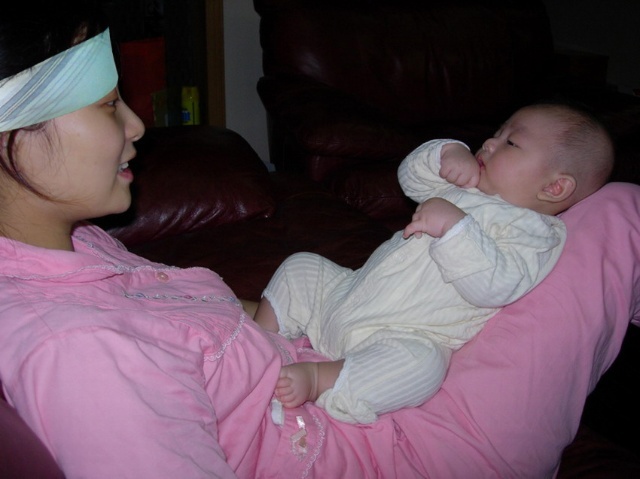

 |
| File photo |
Not a summer passes by without some news of a drowning or of a new mother passing away during a traditional month-long confinement period aimed at improving health after giving birth.
A young mother from Linyi, eastern China’s Shandong province, recently died from severe heatstroke with multiple organ failure at a local hospital. Her death once again triggered heated public debate over a traditional practice that seems to cause more harm than good.
The woman, who had a temperature of 40 degrees Celsius, was wearing a long-sleeve shirt and pants when she was sent to the hospital. She was also found to have been living in a confined room without air conditioning in the hot summer—moreover, the woman was asked to rest under a heavy quilt.
Many Chinese mothers will find this practice familiar, as it is believed to be the golden rule during postpartum confinement, or “zuo yuezi” in Chinese, which literally translates as “sitting through the month.”
Traditional Chinese medicine practitioners believe that a mother is extremely fragile after giving birth and so should be taken well care of to prevent diseases such as arthritis. Good care usually means the mother must be fully protected from the outside world to keep strong wind and bacteria at bay—and usually fresh air altogether. In some cases, the new mother is not even allowed to take a bath.
The mother must also eat special food. In most cases, they are banned from eating too much salt and “cold food,” which means not just refrigerated food but all food identified as “cold” in TCM theory, such as watermelon.
Teng Xiuxiang, a physician with the Beijing Hospital of Traditional Chinese Medicine, explained that the confinement practice originated in ancient agricultural society when farming was the major labor and the confinement was used to make sure women get enough rest.
However, some also pointed out that the confinement period is more a form of discrimination against women than protection, as women are seen as bad luck when in menstruation or after giving birth.
The ancient practice has increasingly faced challenges in the modern age, especially as younger women compare Chinese mothers with those from the West. Many Chinese were amazed by the beautiful public appearance of the Duchess of Cambridge in 2013, very soon after she gave birth to Prince George.
More and more Chinese celebrities are also starting to make public appearances after giving birth rather than follow the traditional “confinement” period. The ancient practice is falling out of favor with youth but remains important to older generations, who can sometimes force their children to follow it.
“It’s a special period of time for women, and it’s easy for them to get sick [within the period]. One cannot totally reject the confinement period like it is meaningless, simply because foreigners don’t do it. After all, we have different habits and diets, but we should not follow the ancient practice strictly without adapting into the new age,” said Teng.
 Fire brigade in Shanghai holds group wedding
Fire brigade in Shanghai holds group wedding Tourists enjoy ice sculptures in Datan Town, north China
Tourists enjoy ice sculptures in Datan Town, north China Sunset scenery of Dayan Pagoda in Xi'an
Sunset scenery of Dayan Pagoda in Xi'an Tourists have fun at scenic spot in Nanlong Town, NW China
Tourists have fun at scenic spot in Nanlong Town, NW China Harbin attracts tourists by making best use of ice in winter
Harbin attracts tourists by making best use of ice in winter In pics: FIS Alpine Ski Women's World Cup Slalom
In pics: FIS Alpine Ski Women's World Cup Slalom Black-necked cranes rest at reservoir in Lhunzhub County, Lhasa
Black-necked cranes rest at reservoir in Lhunzhub County, Lhasa China's FAST telescope will be available to foreign scientists in April
China's FAST telescope will be available to foreign scientists in April "She power" plays indispensable role in poverty alleviation
"She power" plays indispensable role in poverty alleviation Top 10 world news events of People's Daily in 2020
Top 10 world news events of People's Daily in 2020 Top 10 China news events of People's Daily in 2020
Top 10 China news events of People's Daily in 2020 Top 10 media buzzwords of 2020
Top 10 media buzzwords of 2020 Year-ender:10 major tourism stories of 2020
Year-ender:10 major tourism stories of 2020 No interference in Venezuelan issues
No interference in Venezuelan issues
 Biz prepares for trade spat
Biz prepares for trade spat
 Broadcasting Continent
Broadcasting Continent Australia wins Chinese CEOs as US loses
Australia wins Chinese CEOs as US loses